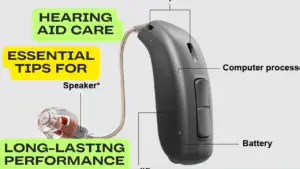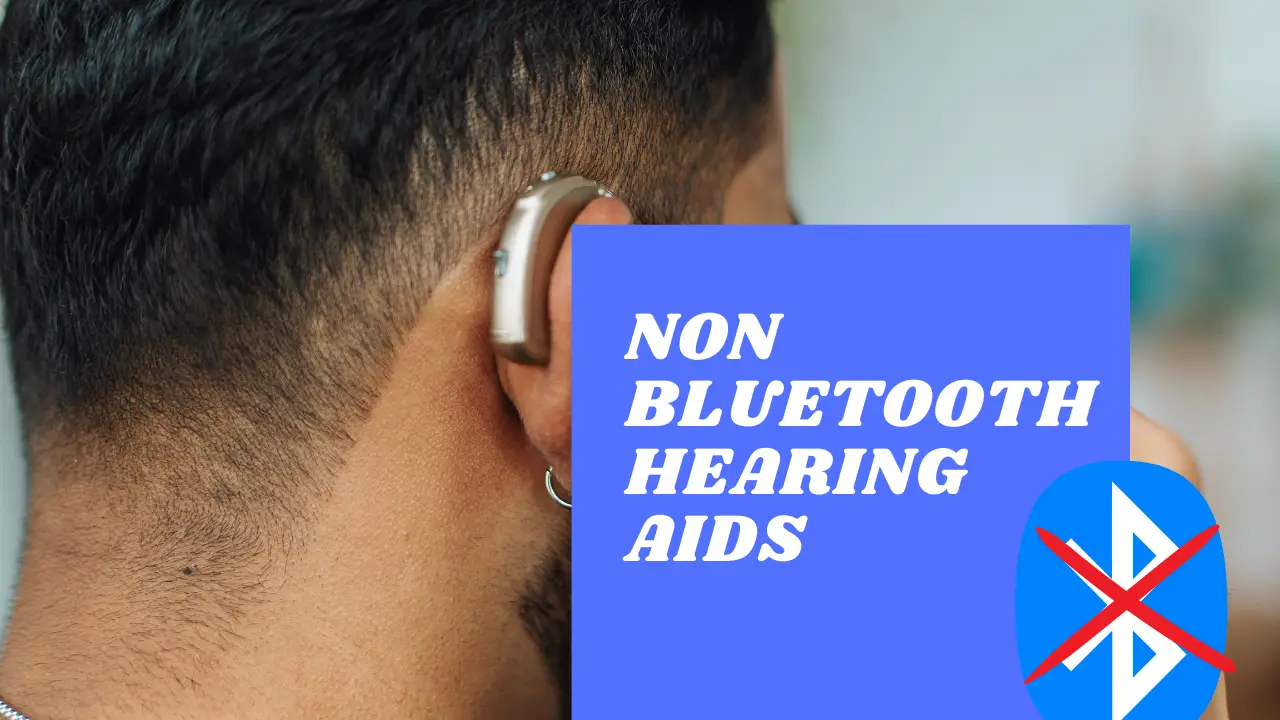Non-Bluetooth hearing aids offer a reliable solution for individuals with hearing loss seeking enhanced auditory experiences without wireless complexities. Explore the benefits, types, and top brands of non-Bluetooth hearing aids. Learn about their extended battery life, minimal interference, and cost-effectiveness compared to Bluetooth models. Consider factors like compatibility and lifestyle before investing. Discover tips for selecting the right device and debunk common misconceptions. Real-life experiences provide insight into the effectiveness of non-Bluetooth hearing aids. Find the perfect fit for your needs and improve your hearing health today.
Introduction to Non-Bluetooth Hearing Aids
Non-Bluetooth hearing aids represent a straightforward yet effective solution for individuals seeking enhanced auditory experiences without the complexities associated with wireless connectivity. These devices operate independently of external devices like smartphones or computers, providing users with reliable sound amplification.
Understanding How Non-Bluetooth Hearing Aids Operate

How Non-Bluetooth Hearing Aids Function
Non-Bluetooth hearing aids utilize traditional analog or digital amplification technologies to improve sound perception for individuals with hearing impairments. Unlike Bluetooth-enabled devices, they don’t rely on wireless signals for operation, ensuring direct and clear sound amplification.
Different Types of Non-Bluetooth Hearing Aids
Non-Bluetooth hearing aids come in various forms, including behind-the-ear (BTE), in-the-ear (ITE), and completely-in-the-canal (CIC) models. Each type offers distinct advantages in terms of comfort, discretion, and performance.
Benefits of Opting for Non-Bluetooth Hearing Aids
Extended Battery Life
Non-Bluetooth hearing aids boast longer battery life compared to their wireless counterparts since they don’t require constant Bluetooth connectivity. This feature ensures extended usage without frequent battery replacements.
Minimal Interference
By operating independently of wireless signals, non-Bluetooth hearing aids experience minimal interference, providing users with a stable listening experience even in noisy environments.
Cost-Effectiveness
Non-Bluetooth hearing aids are generally more affordable than Bluetooth-enabled models, making them accessible to a wider range of individuals with hearing loss. This affordability allows users to enjoy the benefits of hearing aids without straining their finances.
Factors to Consider Before Investing in Non-Bluetooth Hearing Aids
Compatibility with Other Devices
Before purchasing non-Bluetooth hearing aids, it’s essential to consider compatibility with other devices you may use, such as televisions or audio streaming devices. While these aids lack wireless connectivity, they may offer compatibility options for specific accessories or assistive listening devices.
Lifestyle and Usage Patterns
Evaluate your lifestyle and usage patterns to determine if non-Bluetooth hearing aids align with your needs. If you primarily use hearing aids in quiet environments and don’t require wireless connectivity, non-Bluetooth models may be a suitable choice.
Top Brands Offering Non-Bluetooth Hearing Aids
When exploring non-Bluetooth hearing aid options, consider reputable brands like Gnresound, Signia, Oticon, Phonak etc which is known for their quality and reliability. Conduct thorough research and compare features, pricing, and customer reviews to find the best fit for your needs.
Tips for Selecting the Right Non-Bluetooth Hearing Aid
Key Considerations
- Degree of hearing loss
- Comfort and fit
- Battery life
- Warranty and support options
Helpful Suggestions
- Consult with an audiologist for a comprehensive hearing assessment
- Test different models to find the most comfortable fit
- Consider additional features such as noise reduction and feedback suppression
Debunking Common Misconceptions About Non-Bluetooth Hearing Aids
Despite their benefits, non-Bluetooth hearing aids are often subject to myths and misconceptions. Addressing these misconceptions can help individuals make informed decisions about their hearing health.
Real-Life Experiences with Non-Bluetooth Hearing Aids
To provide insight into the effectiveness of non-Bluetooth hearing aids, share real-life testimonials and success stories from individuals who have experienced positive outcomes with these devices. Hearing firsthand experiences can help alleviate concerns and inspire confidence in potential users.
Conclusion
Non-Bluetooth hearing aids offer a reliable and cost-effective solution for individuals with hearing loss. By understanding the technology behind these devices, considering their benefits, and exploring top brands, individuals can make informed decisions to improve their hearing health and overall quality of life.
More on videos:
Unique FAQs
- Are non-Bluetooth hearing aids suitable for all types of hearing loss?
Non-Bluetooth hearing aids can accommodate various degrees of hearing loss, but it’s essential to consult with an audiologist to determine the most suitable option for your specific needs.
- Can non-Bluetooth hearing aids connect to other devices like smartphones or televisions?
While non-Bluetooth hearing aids lack wireless connectivity, some models offer compatibility with certain accessories or assistive listening devices for enhanced functionality.
- Do non-Bluetooth hearing aids require frequent battery replacements?
Non-Bluetooth hearing aids typically have longer battery life compared to wireless devices, reducing the need for frequent replacements. However, battery life may vary depending on usage patterns and individual preferences.
- Are non-Bluetooth hearing aids less expensive than Bluetooth models?
Yes, non-Bluetooth hearing aids are often more affordable than their Bluetooth counterparts, making them a cost-effective option for individuals with hearing loss.
- How can I determine if non-Bluetooth hearing aids are the right choice for me?
Consider factors such as your lifestyle, usage patterns, and hearing needs when evaluating non-Bluetooth hearing aids. Consulting with an audiologist can also provide valuable guidance in selecting the best option for your individual requirements.
Read More:
Do Hearing Aids Cause Vertigo?
Signia vs Rexton: A Comprehensive Comparison of Hearing Aids


1 thought on “Exploring Non-Bluetooth Hearing Aids: A Complete Guide”